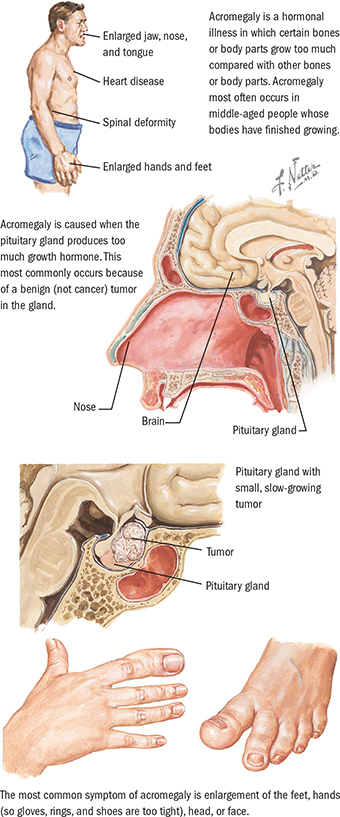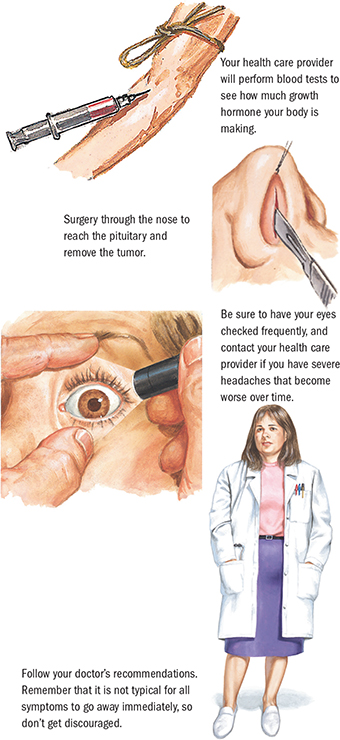
Acromegaly is an illness in which some soft skin and bones of the head, face, hands, and feet can grow out of proportion to the rest of your body. Acromegaly is rare; only about 750 people per year are diagnosed with it in the U.S. However, 10 to 20 times as many people currently live with it.
Acromegaly usually occurs in middle-aged adults who finished growing in height but then other body parts start growing. Children can also have acromegaly.
This illness is caused by production of too much growth hormone made by the body’s pituitary gland. This gland makes too much growth hormone because of a benign (not cancer) tumor, or growth. This tumor usually occurs in the same part of the brain as the pituitary gland.
Enlargement of bones of the hands, feet, head, or face is a common symptom. Others include headaches, blurred vision, joint pain, numbness and tingling of the fingers, high blood pressure, carpal tunnel syndrome (numbness of fingers), high blood sugar (glucose) level, changes in a woman’s periods (menstrual cycle), impotence in men, and excess growth of skin on the forehead, jaw, lips, and tongue. Snoring and space between the teeth may increase, and the voice may get deeper. Acromegaly may also cause arthritis, heart disease, and sleep apnea.
The health care provider will perform a physical examination and do blood tests to measure the amount of growth hormone.
An MRI (magnetic resonance imaging) or CT (computed tomography) scan of the pituitary gland will be done to find the tumor.

Early diagnosis and treatment of overproduction of growth hormone are needed to prevent acromegaly.
Surgery may be done to remove the tumor. Surgery is done by reaching the tumor in the pituitary gland through the nose or above the lip, so no scarring occurs.
Radiation to the pituitary gland and medicine are other treatments. Often, a combination of all these methods is used.
The health care provider may suggest seeing an endocrinologist, a health care provider who treats hormone problems.
Acromegaly requires lifelong treatment. Surgery often succeeds, but hormone levels may not return to normal, and medicines may be needed even after surgery.
Contact the following source:
Copyright © 2016 by Saunders, an imprint of Elsevier, Inc.
Ferri’s Netter Patient Advisor